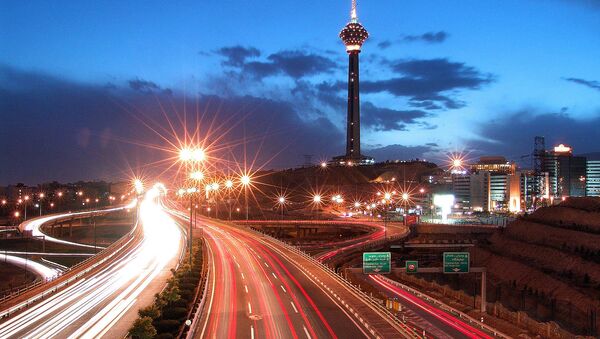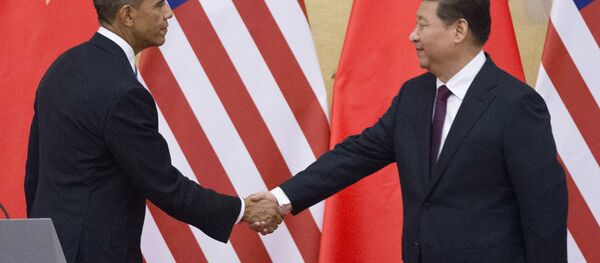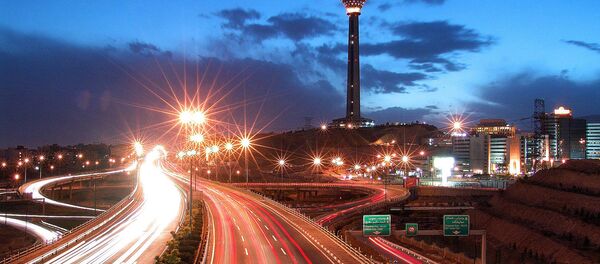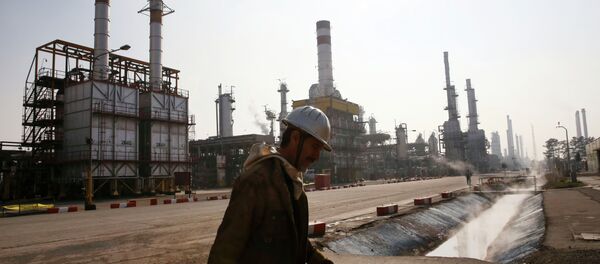First and foremost, the Iran nuclear agreement signed by Tehran and the P5+1 is not a done deal yet. The story is far from over, US expert in nuclear energy and the environment James Conca stressed.
"Congress has 60 days to review the agreement, giving its opponents plenty of time to derail the Administration's position," the expert noted.
On the other hand, "in Tehran, the deal requires the acceptance of Iran's supreme leader Ayatollah Ali Khamenei who, together with hardliners, is suspicious of any deal with the United States after decades of hostility and mistrust," he emphasized.
Indeed, US Secretary of State John Kerry has recently expressed growing concerns regarding the upcoming Congress' vote, stressing that if Congress rejects a nuclear deal with Iran, Tehran will proceed to enrich uranium with the prospect of creating a nuclear weapon.
Why Does Washington Persist in Pushing Ahead the Iran deal?
According to US geopolitical analyst and StopImperialism.com editor Eric Draitser, Washington is planning to engage Tehran into the Western political fold, neutralizing Iran as influential geopolitical player in the Middle East.
"Anyone who understands the imperial and hegemonic agenda of the US should immediately understand that there is an ulterior motive for Washington in securing this deal, one which has nothing to do with morality, peace, or cooperation. Instead, the US wants to transform Iran from a regional and global adversary into something of an asset," Draitser underscored.
However, "the single most important objective for US strategic planners though is to prevent Iran's integration into the emerging non-western, Eurasian political, economic, and military architecture," Draitser pointed out.
The West has finally realized that such institutions as BRICS, the Shanghai Cooperation Organization, the Eurasian Economic Union (EAEU) and the New Silk Road projects pose a substantial threat to the US-dominated world order and its Bretton Woods monetary system.
The "triple alliance" of Russia, China and Iran may ultimately undermine the West's strategy aimed at maintaining control over the Eurasian continent, developed by the British back in the 19th century and dubbed "The Great Game."
"Therefore, the US must create a mechanism to slow down, if not stop and reverse, this burgeoning integration… In this way, the US wants to remake Iran from a bulwark against US-NATO-GCC-Israeli hegemony, into a weapon to be used as a wedge against BRICS-SCO-EEU-New Silk Road cooperation," Draitser highlighted.
West Determined to Put More Pressure on Russia, China
At the same time, Washington sees the Iran deal as leverage in its sanctions war against Russia. Former Assistant Secretary of the US Treasury Dr. Paul Craig Roberts pointed out that the Obama administration is determined "to put more pressure on Russia" and China. In this light the Iran nuclear agreement will definitely untie Washington's hands.
"Despite its gigantic hubris, Washington has figured out that the US cannot simultaneously take on Russia, China, Iran, and the Islamic State. This realization is one reason for the nuclear agreement with Iran. It removes Iran from the mix," Roberts elaborated.
Simultaneously, Washington believes that the Iran deal may solve the "problem" of Europe's energy dependence on Russia. This dependence is considered by the Obama administration a real thorn in its flesh that is thwarting the US' plans of NATO's military buildup in Europe and its sanctions policy against Russia. According to some estimates, Iran's proved natural gas reserves amount to 1,046 trillion cubic feet (29.6 trillion cubic meters) or about 15.8 percent of world's total reserves. Iran also used to be the biggest crude oil exporter after Saudi Arabia.
'Don't Count Your Chickens Before They've Hatched'
However, it does not mean that Washington's calculations will prove efficient and the West's concepts will turn into reality. The situation on the ground is far more complicated.
"Amid an atmosphere of threat the enemies have created, as far as safeguarding its defense and security capabilities are concerned, the Islamic Republic will never bow to the enemy's excessive demands. God willing, the country's defense capabilities and security privacy will be safeguarded," Khamenei emphasized in a clear reference to the United States.
It is also highly doubtful that Iran will abandon its longstanding regional Shiite allies to stay face-to-face with Israel and Sunni monarchies. Furthermore, Tehran is unwilling to compete with Russia in oil and gas markets.
This theme has been repeatedly discussed and Iranian President Rouhani has made it clear that Tehran has no desire to push Russia out of Europe, US columnist and managing editor for Veterans Today Jim W. Dean noted.
"The base economics are simple. Russia has a $110B trade deficit with the EU, approximately the value of how much energy it sells them, so the trade balance does not require a huge currency imbalance. Oil is the currency; and with Iran it will be the same. It wants to sell at least enough gas to pay for all the things it is buying from the EU. Besides, in five years the huge Russian gas deals with China will start cash flowing to cover any expected diversification in EU supplies, which the Russian gas industry has stated as its long term goal," Dean elaborated.
The Iran nuclear deal is paving the way for the country's economic rise. According to Dean, Iran will receive about $600 billion in foreign investment in the first ten years. And, predictably, no one will allow Jerusalem to bomb everybody's investments and "walk away without some severe damage," the expert stressed.
The West's political and military aggression is accelerating the Eurasian economic, political and military integration, and Iran is likely to play an important role in this process. That means that the Great Game is far from being finished, instead it just has got its second wind.





